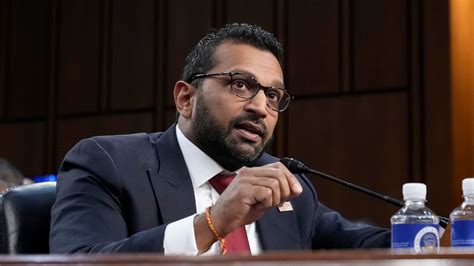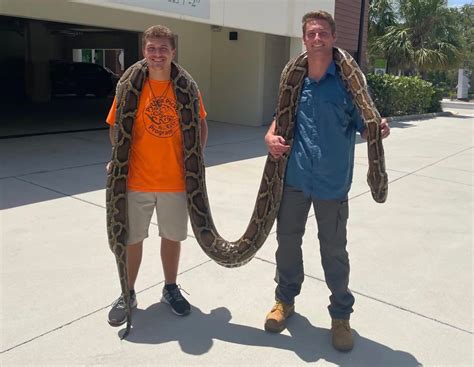
A Navy sailor who was forced to give away his dog, Popeye, due to deployment, was reunited with his furry companion after a successful social media campaign helped track him down across state lines.
U.S. Navy sailor Elijah Lee was heartbroken when he had to give up his dog, Popeye, before being deployed overseas. Lee entrusted Popeye to a friend, who, struggling with personal issues, gave the dog away to a family in another state. Determined to find his beloved pet, Lee turned to social media, launching a campaign that ultimately led to Popeye’s discovery and return. The heartwarming reunion, facilitated by the power of online communities, highlights the deep bonds between service members and their animals.
Elijah Lee, stationed in Virginia, never anticipated the emotional rollercoaster that would ensue after his deployment orders arrived. Like many service members, Lee faced the difficult decision of what to do with his pet during his time away. He had rescued Popeye, a mixed-breed dog with a charming personality, from a local shelter a few years prior. The two had formed an unbreakable bond, with Popeye becoming Lee’s loyal companion and source of comfort.
“Popeye was more than just a pet; he was family,” Lee explained. “Leaving him was one of the hardest things I’ve ever had to do.”
Initially, Lee arranged for a close friend to care for Popeye while he was deployed. He believed he had found a reliable caregiver who understood the importance of maintaining the bond they shared. However, unforeseen circumstances soon arose. Lee’s friend, grappling with personal challenges and housing instability, made the difficult decision to re-home Popeye.
Unbeknownst to Lee, Popeye was given away to a family residing in another state. When Lee returned from his deployment and contacted his friend, he was devastated to learn that Popeye was no longer in their care. The friend, remorseful and apologetic, explained the situation and provided Lee with the limited information they had about Popeye’s new family.
“I was heartbroken,” Lee recounted. “I felt like I had failed Popeye. All I wanted was to bring him home.”
Determined to be reunited with his dog, Lee embarked on a mission to track down Popeye. He started by contacting local animal shelters and rescue organizations, hoping that Popeye might have been registered or reported missing. He also posted flyers in the area where his friend had lived, hoping someone might recognize Popeye and provide information.
After exhausting these initial avenues, Lee turned to social media. He created a Facebook page dedicated to finding Popeye, sharing photos and stories of their time together. He wrote heartfelt posts expressing his love for Popeye and his determination to bring him home. He urged anyone with information about Popeye’s whereabouts to come forward.
“I knew social media was a long shot, but I was desperate,” Lee said. “I had to try everything I could.”
Lee’s social media campaign quickly gained traction. Friends, family members, and even strangers shared his posts, helping to spread the word about Popeye’s disappearance. The Facebook page became a hub for information and support, with people offering tips, suggestions, and encouragement.
One of the most valuable pieces of information came from a woman who recognized Popeye from a photo shared on the Facebook page. She believed she had seen a dog matching Popeye’s description in a park in a neighboring state. She provided Lee with a possible location and contact information for the family who owned the dog.
Armed with this new lead, Lee contacted the family and explained his situation. Initially, the family was hesitant, as they had grown attached to Popeye and believed he was a stray when they adopted him. However, after seeing photos and hearing Lee’s story, they began to understand the depth of their bond.
“They were very understanding and compassionate,” Lee said. “They could see how much Popeye meant to me.”
After several conversations and the exchange of vet records and adoption paperwork, the family agreed to return Popeye to Lee. The reunion was arranged at a neutral location, where Lee and Popeye could be reunited in a safe and comfortable environment.
The moment Lee and Popeye saw each other was captured on video and shared on social media, quickly going viral. The video shows Popeye running towards Lee, jumping into his arms, and showering him with kisses. Lee was overcome with emotion, hugging Popeye tightly and burying his face in his fur.
“It was the best feeling in the world,” Lee said. “I was so happy to have him back.”
The story of Lee and Popeye’s reunion has touched the hearts of people around the world. It is a testament to the power of social media to connect people and facilitate positive outcomes. It is also a reminder of the unbreakable bond between humans and animals, and the lengths to which people will go to be reunited with their beloved pets.
Lee and Popeye are now back home in Virginia, where they are enjoying each other’s company and making up for lost time. Lee is grateful for the support he received from the online community and for the compassion of the family who cared for Popeye while he was missing.
“I couldn’t have done it without them,” Lee said. “I’m so thankful to everyone who helped bring Popeye home.”
The Navy has yet to release a formal statement regarding the incident. However, anecdotal reports suggest that the Navy is reviewing its policies concerning pet care for deployed service members to prevent similar situations from occurring in the future. This case underscores the critical need for robust support systems for military personnel who face unique challenges in caring for their pets during deployments and other assignments. The emotional distress caused by the separation and subsequent search for Popeye highlights the potential impact on a sailor’s well-being and readiness.
The reunion of Elijah Lee and Popeye has sparked a broader conversation about the challenges faced by military personnel in caring for their pets. Many service members struggle to find reliable and affordable pet care during deployments, training exercises, and permanent changes of station (PCS). This can lead to difficult decisions, such as surrendering their pets to shelters or relying on friends or family members who may not be able to provide adequate care.
Several organizations and initiatives are working to address these challenges. Programs like Dogs on Deployment and Guardian Angels for Soldier’s Pets provide resources and support to military families who need temporary pet care. These organizations connect service members with volunteer foster families who are willing to care for their pets while they are away.
“We believe that no service member should have to choose between their service and their pet,” said Alisa Johnson, founder of Dogs on Deployment. “We are committed to providing a safe and loving home for their pets while they are serving our country.”
In addition to providing foster care, these organizations also offer financial assistance for pet care expenses, such as veterinary bills and boarding fees. They also advocate for policies that support military pet owners, such as allowing pets in military housing and providing pet-friendly travel options.
The story of Elijah Lee and Popeye serves as a reminder of the importance of these support systems and the need for continued efforts to address the challenges faced by military pet owners. By working together, we can ensure that service members can care for their beloved pets without sacrificing their careers or their peace of mind. The challenges extend beyond just the emotional aspect; they also encompass logistical and financial burdens that can significantly impact a service member’s ability to focus on their duties. Finding reliable pet sitters, affording veterinary care, and navigating pet transportation during PCS moves are common stressors.
Furthermore, the lack of standardized policies across different military branches and installations creates additional confusion and uncertainty for service members. A comprehensive and coordinated approach is needed to ensure that all military personnel have access to the resources and support they need to care for their pets.
The viral nature of Lee and Popeye’s reunion underscores the growing awareness of the challenges faced by military pet owners and the public’s desire to support them. This heightened awareness can be leveraged to advocate for policy changes and increased funding for pet care programs. It also highlights the importance of responsible pet ownership and the need for individuals to carefully consider the long-term commitments involved before adopting a pet.
The outpouring of support for Lee and Popeye on social media also demonstrates the power of online communities to effect positive change. Social media platforms can be used to connect service members with resources, raise awareness about important issues, and mobilize support for worthy causes. In this case, social media played a crucial role in reuniting a sailor with his beloved dog, highlighting the potential for online communities to make a real difference in people’s lives. The effective use of hashtags and targeted sharing amplified the reach of Lee’s campaign, demonstrating the strategic application of social media tools in such situations.
Moreover, the case raises questions about the ethical responsibilities of individuals who agree to care for pets on behalf of deployed service members. While unforeseen circumstances can arise, it is essential to prioritize the well-being of the animal and to communicate openly and honestly with the service member about any challenges or changes in plans. In this instance, the friend’s decision to re-home Popeye without Lee’s knowledge caused significant distress and complicated the process of reunification. Clear communication and a commitment to finding a suitable alternative placement would have been more responsible and ethical. This situation underscores the importance of establishing clear agreements and contingency plans when entrusting the care of a pet to another individual.
The story also highlights the importance of microchipping and registering pets. If Popeye had not been microchipped, it would have been significantly more difficult to identify him and reunite him with Lee. Microchipping provides a permanent form of identification that can help ensure that lost pets are returned to their owners. It is also essential to keep the microchip registration information up to date, so that owners can be contacted quickly if their pet is found. Lee’s experience serves as a powerful reminder of the value of these preventative measures. The implementation of mandatory microchipping for all pets owned by military personnel could be a valuable step in ensuring the safety and well-being of these animals.
Beyond the immediate joy of the reunion, the story of Elijah Lee and Popeye offers valuable lessons about resilience, perseverance, and the power of community. Lee’s unwavering determination to find his dog, despite the challenges he faced, is an inspiration to others who are facing difficult situations. His willingness to share his story and to ask for help from others demonstrates the importance of vulnerability and the strength that can be found in community support. The outpouring of support he received from friends, family, and strangers alike underscores the inherent goodness of people and their willingness to help those in need. This heartwarming story serves as a reminder that even in the face of adversity, hope and resilience can prevail.
In conclusion, the reunion of Navy sailor Elijah Lee and his dog Popeye is a testament to the enduring bond between humans and animals, the power of social media, and the importance of community support. While the situation highlights the challenges faced by military pet owners, it also underscores the resilience and determination of those who are committed to caring for their beloved pets. By raising awareness about these challenges and by supporting organizations that provide assistance to military pet owners, we can ensure that service members can continue to enjoy the companionship of their animals without sacrificing their careers or their peace of mind. The story serves as a powerful reminder of the profound impact that pets can have on our lives and the lengths to which we will go to protect and care for them. The broader implications of this story extend to policy considerations within the military, ethical responsibilities of pet caregivers, and the importance of preventative measures such as microchipping. By addressing these issues, we can create a more supportive and compassionate environment for military pet owners and ensure the well-being of their animal companions.
Frequently Asked Questions (FAQ)
1. What happened to Popeye, the dog of Navy sailor Elijah Lee?
Popeye was given away by a friend of Elijah Lee, who was supposed to care for him while Lee was deployed. The friend faced personal issues and re-homed Popeye to a family in another state without Lee’s knowledge.
2. How did Elijah Lee find Popeye after he was given away?
Lee launched a social media campaign, creating a Facebook page dedicated to finding Popeye. The campaign gained traction, and someone recognized Popeye from a photo and provided Lee with information about his location.
3. What role did social media play in the reunion of Elijah Lee and Popeye?
Social media was instrumental in spreading the word about Popeye’s disappearance and connecting Lee with individuals who had information about his whereabouts. The Facebook page became a hub for information and support, ultimately leading to Popeye’s discovery.
4. What are some of the challenges faced by military personnel in caring for their pets during deployments?
Military personnel often struggle to find reliable and affordable pet care during deployments, training exercises, and permanent changes of station (PCS). This can lead to difficult decisions, such as surrendering their pets to shelters or relying on friends or family members who may not be able to provide adequate care.
5. What resources are available to help military personnel care for their pets?
Organizations like Dogs on Deployment and Guardian Angels for Soldier’s Pets provide resources and support to military families who need temporary pet care. These organizations connect service members with volunteer foster families who are willing to care for their pets while they are away. They also offer financial assistance for pet care expenses and advocate for policies that support military pet owners.
In-depth Analysis, Background Information, and Expanded Context:
The story of Elijah Lee and Popeye’s reunion resonates deeply because it taps into several universal themes: the bond between humans and animals, the challenges faced by military families, and the power of community support. To fully appreciate the significance of this story, it’s crucial to delve into the broader context surrounding these themes.
The Human-Animal Bond:
The human-animal bond is a mutually beneficial and dynamic relationship between people and animals that influences the health and well-being of both. This bond has been recognized for centuries and is increasingly supported by scientific research. Animals provide companionship, reduce stress, and offer emotional support. For many people, pets are considered members of the family, providing unconditional love and a sense of purpose.
For military personnel, the human-animal bond can be particularly significant. Service members often face high levels of stress, isolation, and trauma. Pets can provide a source of comfort, stability, and unconditional love, helping to mitigate the negative effects of these experiences. Studies have shown that pet ownership can reduce symptoms of PTSD, anxiety, and depression in military personnel.
The separation from a beloved pet due to deployment or other military duties can be incredibly distressing for service members. The emotional impact of this separation can affect their mental health, morale, and overall readiness. Therefore, it’s essential to recognize the importance of the human-animal bond and to provide support systems that enable service members to maintain these relationships.
Challenges Faced by Military Families:
Military families face unique challenges that can impact their well-being and resilience. Frequent deployments, permanent changes of station (PCS), and the stress of military life can create significant strain on families. Finding affordable and reliable childcare, maintaining a stable career, and accessing quality healthcare are just some of the challenges that military families face.
Pet ownership can add another layer of complexity to these challenges. Finding pet-friendly housing, affording veterinary care, and arranging for pet transportation during PCS moves can be difficult and expensive. During deployments, service members may struggle to find someone they trust to care for their pets. These challenges can be particularly acute for single service members or those with limited family support.
The story of Elijah Lee and Popeye highlights the need for greater support for military pet owners. By providing resources and assistance, we can help alleviate some of the challenges they face and ensure that they can continue to enjoy the companionship of their beloved animals.
The Power of Community Support:
The outpouring of support for Elijah Lee and Popeye on social media demonstrates the power of community to effect positive change. People from all walks of life came together to help reunite a sailor with his dog, demonstrating the inherent goodness of humanity and the willingness to help those in need.
Community support can take many forms, from offering practical assistance to providing emotional encouragement. In the case of Elijah Lee and Popeye, social media played a crucial role in connecting Lee with resources and raising awareness about his situation. Friends, family members, and even strangers shared his posts, helping to spread the word and generate leads.
The story of Elijah Lee and Popeye serves as a reminder that we are all interconnected and that we have a responsibility to support one another. By working together, we can create a more compassionate and resilient society.
Policy Implications and Recommendations:
The story of Elijah Lee and Popeye raises important questions about the policies and practices surrounding pet care for military personnel. While some military installations offer pet boarding or veterinary services, these resources are often limited and may not be accessible to all service members.
Here are some policy recommendations that could help address the challenges faced by military pet owners:
- Establish standardized pet care policies across all military branches and installations: This would ensure that all service members have access to consistent information and resources regarding pet care.
- Increase funding for pet care programs and services: This would enable military installations to offer more affordable and accessible pet boarding, veterinary care, and transportation services.
- Encourage the development of pet-friendly housing options on military installations: This would make it easier for service members to keep their pets with them during deployments and PCS moves.
- Provide financial assistance to service members who need help with pet care expenses: This could include grants or subsidies for veterinary bills, boarding fees, and transportation costs.
- Promote the use of volunteer pet fostering programs: These programs can provide a safe and loving home for pets while service members are deployed or otherwise unable to care for them.
- Implement mandatory microchipping for all pets owned by military personnel: This would help ensure that lost pets can be quickly identified and reunited with their owners.
- Educate service members about responsible pet ownership and the resources available to them: This would help them make informed decisions about pet care and access the support they need.
- Recognize the emotional significance of the human-animal bond and incorporate pet care considerations into military family support programs: This would help ensure that service members receive the emotional support they need to cope with the challenges of military life.
Ethical Considerations for Pet Caregivers:
The story of Elijah Lee and Popeye also raises important ethical considerations for individuals who agree to care for pets on behalf of deployed service members. While unforeseen circumstances can arise, it is essential to prioritize the well-being of the animal and to communicate openly and honestly with the service member about any challenges or changes in plans.
Here are some ethical guidelines for pet caregivers:
- Establish clear agreements and contingency plans: Before agreeing to care for a pet, discuss the responsibilities and expectations with the service member. Create a written agreement that outlines the duration of care, the financial responsibilities, and the procedures to follow in case of emergencies.
- Prioritize the well-being of the animal: Provide the pet with food, water, shelter, exercise, and veterinary care. Treat the pet with kindness and respect.
- Communicate openly and honestly with the service member: Keep the service member informed about the pet’s health and well-being. Notify them immediately of any problems or concerns.
- Seek permission before making any major decisions: Consult with the service member before making any major decisions about the pet’s care, such as changing the pet’s diet, administering medication, or seeking veterinary treatment.
- If unable to continue caring for the pet, find a suitable alternative placement: If you are no longer able to care for the pet, do not give the pet away without the service member’s knowledge or consent. Work with the service member to find a suitable alternative placement for the pet.
- Respect the bond between the service member and the pet: Understand that the pet is more than just an animal; it is a member of the service member’s family. Treat the pet with the same care and respect that you would show to a member of your own family.
The Role of Social Media in Reuniting Lost Pets:
The story of Elijah Lee and Popeye highlights the power of social media to reunite lost pets with their owners. Social media platforms can be used to share photos and descriptions of lost pets, connect with local animal shelters and rescue organizations, and mobilize volunteers to search for missing animals.
Here are some tips for using social media to find a lost pet:
- Create a detailed post with photos and a description of the pet: Include the pet’s name, breed, age, sex, color, and any distinguishing features. Describe the circumstances of the pet’s disappearance and the location where it was last seen.
- Share the post on multiple social media platforms: Post the information on Facebook, Twitter, Instagram, and other social media platforms.
- Join local lost and found pet groups: Many communities have dedicated social media groups for lost and found pets. Join these groups and share your post.
- Use relevant hashtags: Use hashtags such as #lostpet, #foundpet, #missingdog, and #reunited.
- Ask friends and family to share the post: Encourage your friends and family to share your post with their networks.
- Contact local animal shelters and rescue organizations: Provide them with a description of your pet and ask them to keep an eye out for it.
- Post flyers in the area where the pet was last seen: Include a photo of the pet and your contact information.
- Be responsive to inquiries: Respond promptly to any inquiries you receive about your pet.
- Be patient and persistent: It may take time to find your lost pet. Don’t give up hope.
Conclusion:
The reunion of Navy sailor Elijah Lee and his dog Popeye is a heartwarming story that underscores the importance of the human-animal bond, the challenges faced by military families, and the power of community support. By addressing the policy gaps and ethical considerations surrounding pet care for military personnel, we can ensure that service members can continue to enjoy the companionship of their beloved animals without sacrificing their careers or their peace of mind. The story serves as a powerful reminder that even in the face of adversity, hope and resilience can prevail.









